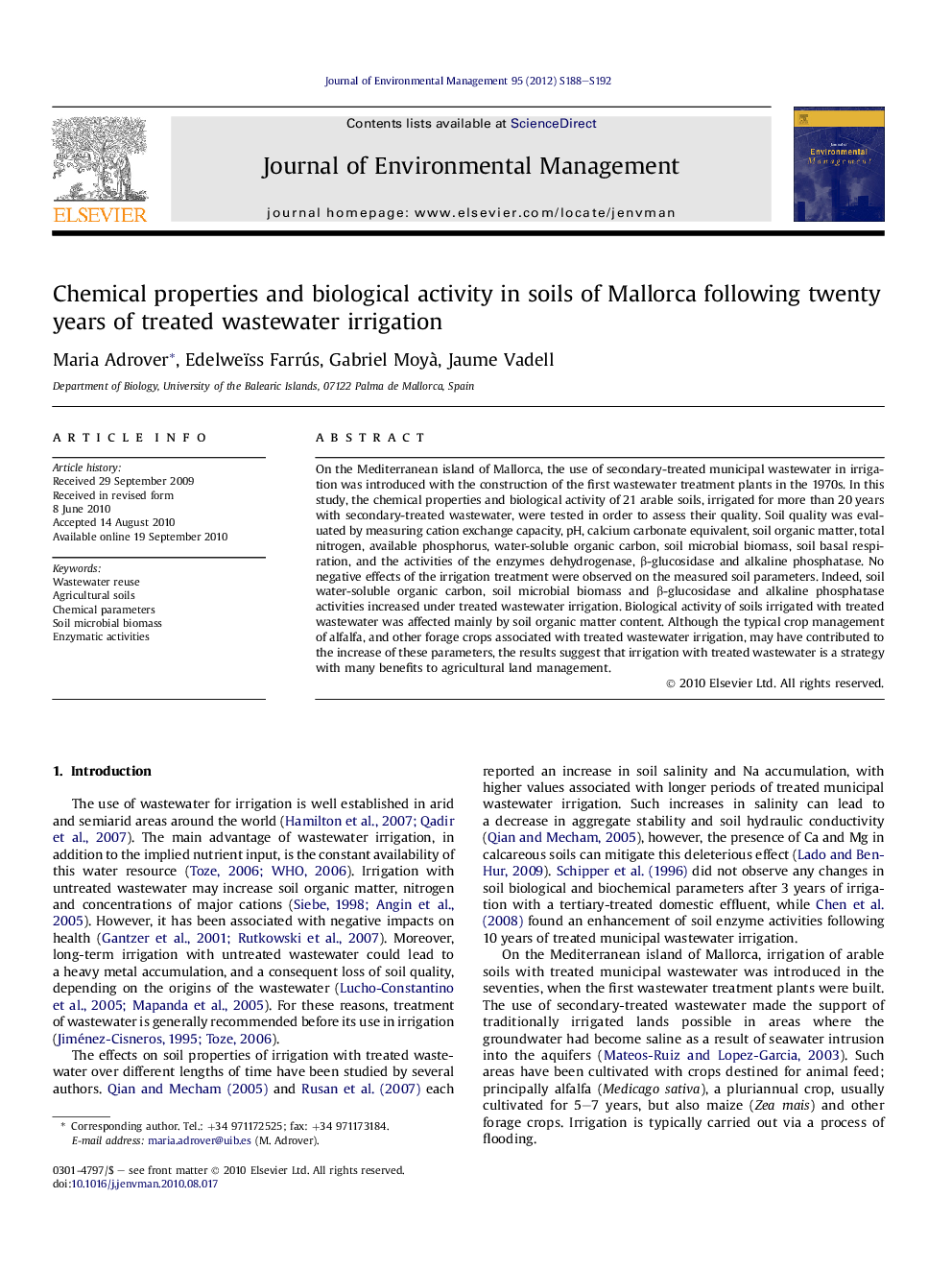| Article ID | Journal | Published Year | Pages | File Type |
|---|---|---|---|---|
| 1057051 | Journal of Environmental Management | 2012 | 5 Pages |
On the Mediterranean island of Mallorca, the use of secondary-treated municipal wastewater in irrigation was introduced with the construction of the first wastewater treatment plants in the 1970s. In this study, the chemical properties and biological activity of 21 arable soils, irrigated for more than 20 years with secondary-treated wastewater, were tested in order to assess their quality. Soil quality was evaluated by measuring cation exchange capacity, pH, calcium carbonate equivalent, soil organic matter, total nitrogen, available phosphorus, water-soluble organic carbon, soil microbial biomass, soil basal respiration, and the activities of the enzymes dehydrogenase, β-glucosidase and alkaline phosphatase. No negative effects of the irrigation treatment were observed on the measured soil parameters. Indeed, soil water-soluble organic carbon, soil microbial biomass and β-glucosidase and alkaline phosphatase activities increased under treated wastewater irrigation. Biological activity of soils irrigated with treated wastewater was affected mainly by soil organic matter content. Although the typical crop management of alfalfa, and other forage crops associated with treated wastewater irrigation, may have contributed to the increase of these parameters, the results suggest that irrigation with treated wastewater is a strategy with many benefits to agricultural land management.
